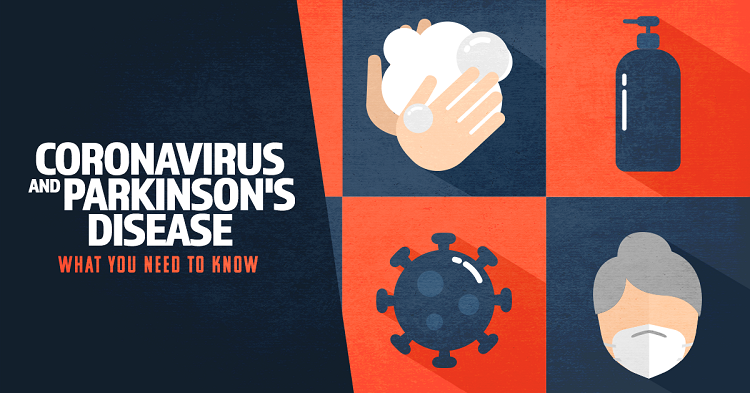In response to the Coronavirus, adults with Parkinson’s disease and their caregivers have taken extra precautions to prevent the disease from spreading. Given that older adults and those with pre-existing conditions are at higher risk of contracting the disease, Brain Matters Research highlights essential points on the novel Coronavirus and Parkinson’s disease.
What is the Coronavirus?
Coronaviruses are a large family of viruses that are common in people and different animal species. In 2019, a new strain of Coronavirus developed and spread from China to other countries, including the United States. The new Coronavirus, also known as COVID-19, has swept across the nation, drastically affecting and disrupting the lives of millions of people.
What are the signs and symptoms of Coronavirus?
Symptoms of COVID-19 may appear 2-14 days after exposure. Common symptoms can include cough, fever, or shortness of breath/difficulty breathing. Additional symptoms can include a combination of:
- Chills
- Muscle pain
- Headache
- Sore throat
- Onset loss of taste or smell
More information on COVID-19 symptoms can be found at CDC.gov. Currently, there is no cure for COVID-19, but there are ways you can limit your exposure and prevent the disease from spreading.
What can those with Parkinson’s disease and caregivers do to prepare?
Viruses often tend to spread faster in assisted living centers, common housing, and residential facilities. Those with Parkinson’s disease and their caregivers should try to avoid communal rooms, practice social distancing, and sanitize often.
Adults with Parkinson’s and caregivers should consider taking extra precautions to be better prepared and prevent the spread of COVID-19:
- Understand and know the symptoms of COVID-19.
- Wash your hands often with water and soap for at least 30 seconds.
- Carry alcohol-based hand sanitizer with at least 60% alcohol content.
- Practice social distancing, keeping 6 ft distance apart from each other.
- Avoid touching the face, eyes, nose, and mouth with dirty hands.
- Wear a face covering in public to prevent the spread of respiratory particles.
- Stay home as often as possible.
People with Parkinson’s disease may also consider the following additional tips:
- Take inventory of medications and stock up on any that are running low.
- Make a list of your doctors and their contact information.
- Keep a Parkinson’s disease Medical Alert Card
Brain Matters Research
Though there is no known cure for Coronavirus or Parkinson’s disease, clinical researchers around the world are working tirelessly to find answers and new treatment options. If you or someone you know has been diagnosed with Parkinson’s disease, talk to our staff about our resources and upcoming clinical trials.
Qualified participants may see a physician or medical staff at no cost. Reimbursement may be available for time and travel. To learn more about our upcoming clinical trials, CLICK HERE or call us at (561) 374-8461.
References:
https://www.cdc.gov/coronavirus/2019-ncov/index.html






